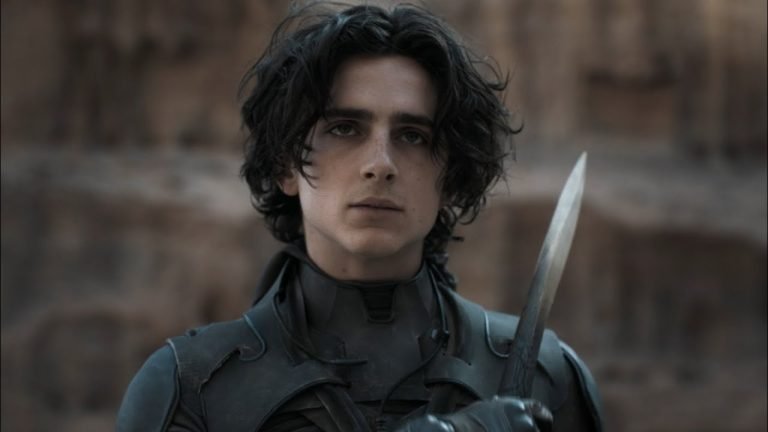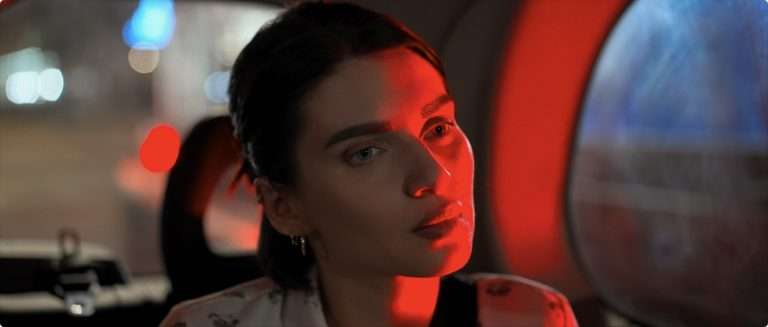Ba has returned to his hometown. A music major, he comes home only to find his father living with a new partner. We can gauge the father and son haven’t been on the warmest terms, both being wary of the other and hesitant in being agreeable. Ba doesn’t protest outright as to why his father didn’t even care to tell him, but neither does he conceal his displeasure at the living arrangement. Their relationship has more apathy towards each other than bitterness.
There’s a perceptible tingle of scorn in his voice when he asks his father if the new woman is someone who worked at the nearby factory. He dismisses and leaves when his father eggs him on to sing something upon the insistence of his new partner. Chinese director Xu Jingwei’s animated mid-length feature, No Changes Have Taken In Our Life, keeps returning to such moments of cursory departures from particular places and situations.
With a tuba strapped over his shoulder, Ba drifts through a grimy, plastic-speckled landscape. Everywhere he trudges through has mounds of garbage and hovering, disinterested people. Jingwei is quite obviously going for the drudgery of modern life, with all its brusqueness and banality. One of the first things Ba remarks about his hometown is how it has barely changed. The attitude of most people is of slouching through their daily routines, indifferent in a smugness to their circumstances. His friend, to whom he tries implying he needs a place, tells him he has quietened, his familiar boisterousness absent.
He even asks Ba if he could entertain his notions of an artist’s lifestyle. The answer he receives initially, Ba suggesting a more hardscrabble reality, isn’t how he imagined it. Perhaps this is the only encounter in the film that culminates with a promise, an expectation, though there is an undercurrent of too many things having passed under the bridge, both people quite different now from how they usually were with one another. Ba attempts to rekindle something with his ex, who hardly disguises her utter boredom with him.
It is apparent Ba is still hopeful of this relationship, but his former lover is no longer keen on him. Ba keeps getting jilted in both his quests for lodging and work. A traveling singer promptly schools and reprimands him for sticking to his limits when Ba advises him to try out some other musical styles that will bring him popularity.
Almost no one in the film is willing to engage with or properly listen to Ba, seemingly vexed and impatient with his queries, no matter how pertinent. Everywhere he goes seeking work casually turns him down. It looks like a place well-attuned to fleecing people, with everyone tacitly going with the passive, laidback flow. The aloofness is so regular Ba’s earnest issues register as odd. The animation deliberately echoes the slowed-down rhythms of the town.
The characters move at a distinctly wooden pace, and a strong sense of nihilism pervades the narrative. A weary resignation cuts through every scene. A sense of the emotionally hollowed out is as remarkably felt as the landscapes around Ba that have fallen into ruin. Jingwei is never shy of sporadically planting the cheekily playful; a turn at a street reveals two men in superhero costumes engaged in a brawl, or when Ba pours the remnants of a bottle into the river below, miniature-sized people come tumbling out, plummeting. These little unpredictable touches, down to the potently ambiguous ending, make No Changes Have Taken In Our Life consistently intriguing despite occasional creeping flickers of intentional tedium.






![The Atlantic City Story [2020]: ‘IFFI’ Review – A muted character-drama about understanding the aimlessness of existence](https://79468c92.delivery.rocketcdn.me/wp-content/uploads/2021/01/The-Atlantic-City-Story-highonfilms-1-768x432.jpg)

